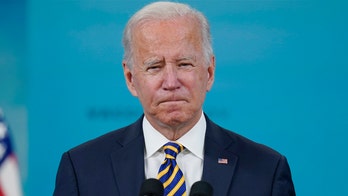The 2024 Vice Presidential Debate between Senator JD Vance and Governor Tim Walz featured several unforgettable moments. Here are the top five highlights.
The vice-presidential debate on Tuesday night offered a refreshing change from the combative tone that has plagued our political discourse over the past eight years. For many viewers, it was a relief to witness a civil exchange between two candidates who, surprisingly, seemed to respect one another.
Sen. JD Vance showcased his skills as both an orator and debater, garnering a more favorable opinion from many voters. He delivered articulate and well-reasoned responses, effectively presenting his positions on key issues. His ability to think on his feet and engage in nuanced discussion impressed many observers.

The Top 5 Moments from the 2024 Vice Presidential Debate
On the other hand, Gov. Tim Walz, while appearing somewhat nervous and lackluster, managed to connect with viewers through his likability and relatability. His folksy charm and self-deprecating humor resonated with many, making him appear more approachable and genuine.
Despite the generally civil tone, frustration arose when candidates failed to answer direct questions. While skillful pivots are common in debates, ignoring a question can leave voters dissatisfied. Vance faced tough questions about January 6th, while Walz stumbled through responses related to his affiliation with the CCP.

The Top 5 Moments from the 2024 Vice Presidential Debate
Both candidates found their best moments when they used language that resonated with the other side. Vance framed his argument using the left's language, referring to "a family model that makes choice possible" and linking gun violence to mental health. Conversely, Walz spoke to conservative voters by emphasizing his respect for the Second Amendment and asserting, "I am not pro-abortion."
To shift perspectives, candidates must directly tackle the biggest concerns on voters' minds. For Vance, his toughest moment came when discussing January 6th. For Walz, the challenge lies in clearly explaining how he and Kamala Harris plan to address economic issues, especially inflation.
Voters wanted more detailed discussions on the current strikes and their broader impacts, relations with Iran and Israel, climate change, and cost of living concerns. With significant challenges facing the nation, voters were disappointed that moderators didn't push the candidates to address these pressing topics more thoroughly.
While storytelling can create a connection with voters, there is a fine line between relatable anecdotes and contrived narratives. Vance's attempts to connect with voters through personal stories—about his Appalachian roots and family struggles—felt a bit forced to some, echoing Kamala Harris's often-criticized narrative about her middle-class upbringing. Stories work best when they connect to relevant issues instead of serving as a distraction from answering tough questions.
Despite various pundits highlighting the strengths of the two vice presidential candidates, Tuesday night's debate ultimately had little impact on undecided voters. While Walz's performance had its successes, his nervous start and notable gaffes left much to be desired. In the end, both candidates offered a little something for everyone—but for those still weighing their options, there were no compelling reasons to change their minds.
As we approach the final stretch of the presidential election, the challenge for both candidates and their running mates is clear: how can they win over undecided voters in just 33 days? The answer lies in two crucial areas. First, they must instill confidence in their ability to combat inflation and the rising cost of living. Second, they need to provide reassurance that tomorrow is going to be better than today.
Voters are understandably anxious about the future, and both candidates have already tapped into this concern—Vice President Kamala Harris and Walz highlighting the threats to democracy and Trump and Vance focused on the difficulties we face with the economy and immigration. Yet, what Americans urgently need now is assurance: a promise that if they cast their vote for the right candidate, life will improve once again. In turbulent times marked by international conflicts, rising prices, and the aftermath of natural disasters, that message of hope and stability is not just important; it is essential. The ability to inspire confidence and reassure voters will determine the next leader of this nation as the clock ticks down to Election Day.










